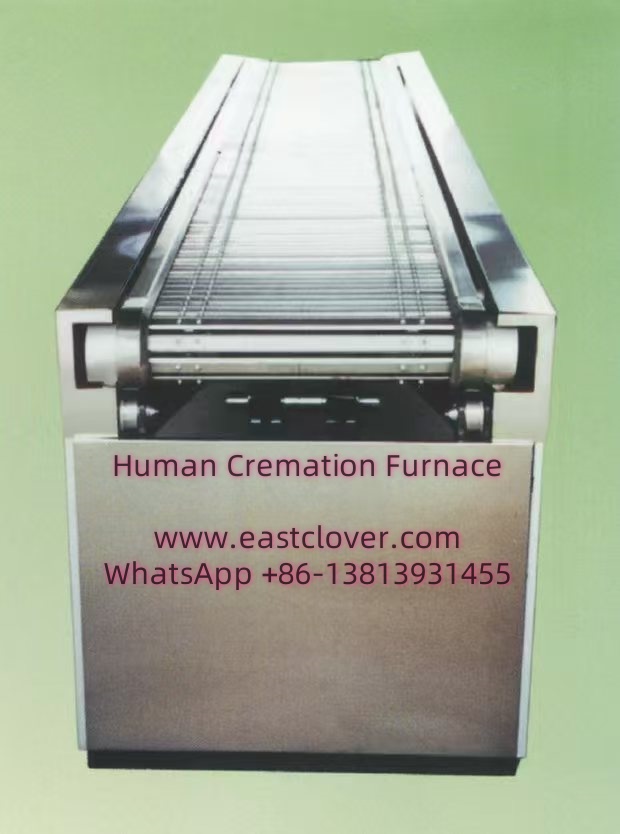Introduction
Casablanca, Morocco’s largest city and economic hub, is grappling with the challenges of rapid urbanization and population growth. As the city expands, traditional burial grounds are nearing capacity, prompting authorities to explore alternative solutions for managing human remains. Enter mobile container cremation furnaces: a novel, albeit controversial, innovation designed to address space constraints and environmental concerns. While proponents hail these units as a forward-thinking response to urban planning challenges, critics argue they clash with cultural, religious, and ethical norms. This news examines the dual narrative surrounding Casablanca’s mobile cremation furnaces and their implications for Moroccan society.
The Innovation: Technology Meets Necessity
Mobile container cremation furnaces are modular, transportable units equipped with advanced incineration technology. Built into shipping containers, they can be deployed quickly to areas with high demand or limited infrastructure. The furnaces operate at temperatures exceeding 800°C, ensuring efficient combustion while minimizing emissions. Automated systems monitor air quality, and filters capture particulate matter, aligning with global environmental standards.
For Casablanca’s municipal authorities, these units offer a pragmatic solution to overcrowded cemeteries. Urban burial spaces are shrinking, and traditional Islamic burial practices—which prioritize rapid interment without embalming—require significant land. Cremation, though unconventional in Morocco, reduces space usage by over 90%, easing pressure on existing cemeteries. The mobility of the units also allows authorities to scale operations based on demand, particularly during crises such as disease outbreaks or natural disasters.
Moreover, the technology caters to Casablanca’s diverse population, including foreign residents and non-Muslim communities who may prefer cremation for personal or religious reasons. By offering this option, Morocco positions itself as a regional leader in adaptive urban management.
The Controversy: Cultural and Ethical Debates
Despite their practical benefits, mobile cremation furnaces have sparked intense debate. Morocco is a predominantly Muslim nation, where Islamic traditions dictate burial rites. Cremation is widely viewed as incompatible with Islamic teachings, which emphasize respect for the deceased’s body and its natural return to the earth. Religious leaders and conservative groups have condemned the units, framing them as a violation of sacred customs.
Environmental arguments have also emerged. While the furnaces meet emission standards, critics question the long-term ecological impact of increased cremation. The process releases carbon dioxide and trace toxins, potentially exacerbating air quality issues in Casablanca, which already struggles with pollution. Skeptics argue that investing in sustainable burial alternatives—such as vertical cemeteries or green burial parks—would align better with both ecological and cultural values.
Public sentiment remains divided. Some residents welcome the modernization of deathcare infrastructure, citing practicality and inclusivity. Others view the furnaces as a symbol of Westernization eroding Moroccan identity. Protests and social media campaigns have amplified calls for the government to reconsider the initiative.
www.southclover.com
Casablanca’s mobile cremation furnaces sit at the intersection of innovation and tradition. While they address urgent urban challenges, their introduction underscores the complexities of balancing progress with cultural preservation. The debate reflects broader tensions in Moroccan society, where rapid modernization often clashes with deeply rooted values. Moving forward, dialogue between policymakers, religious authorities, and communities will be critical to navigating this sensitive issue. Whether the furnaces become a mainstream solution or a contested experiment, they highlight the need for adaptive strategies in an ever-evolving urban landscape.
FAQs
Why is Casablanca introducing mobile cremation furnaces?
Overcrowded cemeteries and land scarcity prompted the initiative. Cremation offers a space-efficient alternative to traditional burials.
Is cremation permitted under Islamic law?
Most Islamic scholars prohibit cremation, favoring burial. The furnaces primarily serve non-Muslim residents and tourists, though this distinction has not quelled controversy.
Are the furnaces environmentally safe?
They adhere to international emission standards, but critics argue that large-scale cremation could still contribute to air pollution over time.
Who is using the mobile cremation services?
Expatriates, non-Muslim communities, and some secular Moroccans are the primary users, though demand remains limited.
How has the public reacted?
Reactions are polarized. Some praise the innovation, while others see it as culturally insensitive.
What alternatives exist to cremation in Morocco?
Vertical cemeteries, reusable burial plots, and green burial sites are under discussion as potential compromises.

Comments are closed